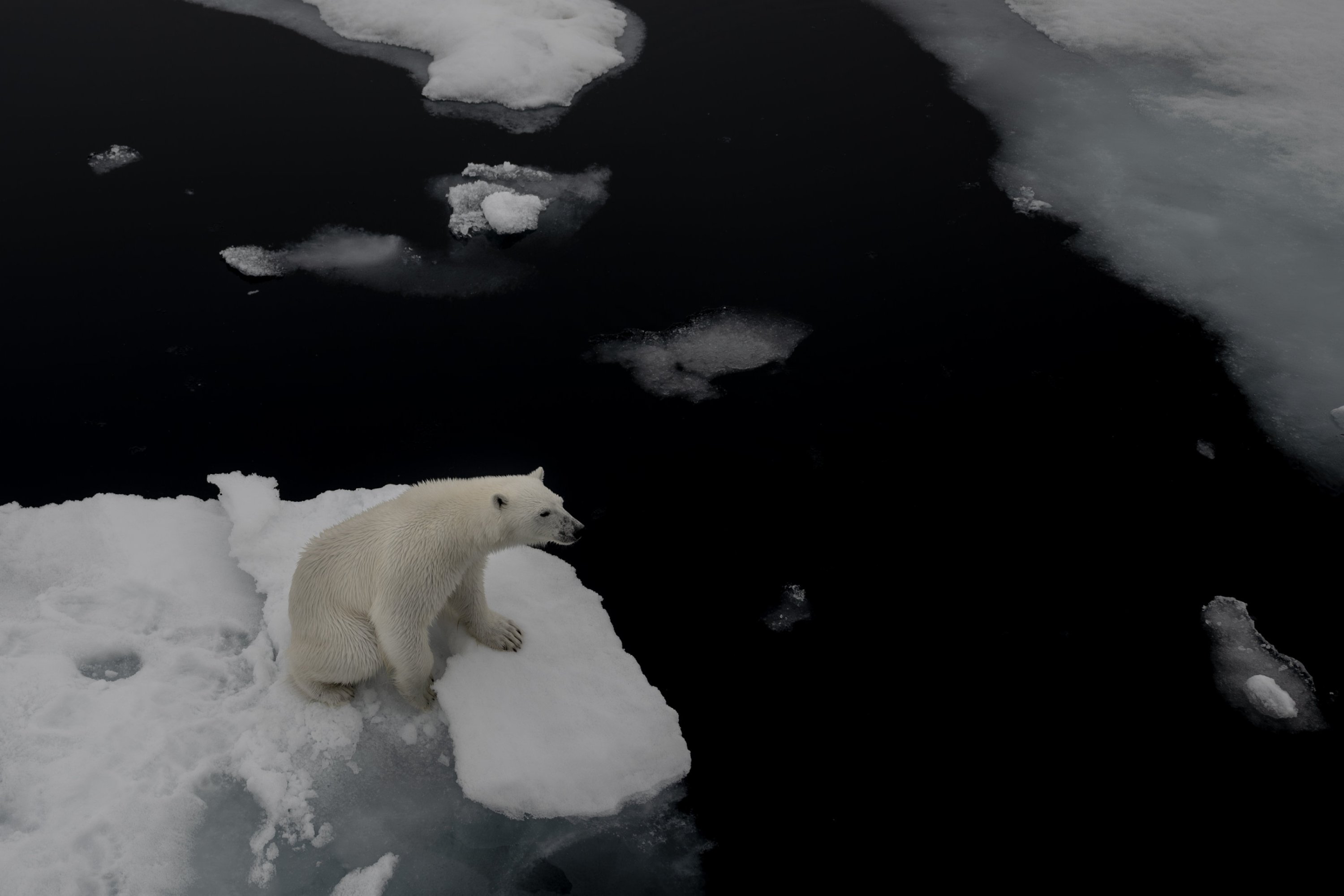© Turkuvaz Haberleşme ve Yayıncılık 2025
A team of Turkish scientists returned to Türkiye after a successful monthlong journey as part of the third National Arctic Scientific Expedition.
Conducted aboard the Norwegian-flagged research vessel PolarXplorer, the 11-member team, under the auspices of the Presidency and Ministry of Industry and Technology and the coordination of the Scientific and Technological Research Council of Türkiye – Marmara Research Center (TÜBITAK MAM) carried out extensive scientific activities at 28 different station points in the Arctic region.
The expedition crew conducted scientific research in fields including adaptation of ecosystems in the Arctic Ocean, phytoplankton samplings, identification of marine pollutants, monitoring of physical parameters of seawater, observations of atmospheric pollution in the marine environment such as microplastics, meteorological observations, environmental impacts and seasonal assessments of new trade routes, observations of sea ice, and tracking of marine mammals.
Captain Özgün Oktar, the expedition leader, emphasized the significance of the polar regions for scientists, as they offer valuable insights into climate change and its impact on the ecosystem.
The team experienced a record-breaking hot July during the expedition, highlighting the effects of global warming in the Arctic region.
“When we look at the world averages, the month of July, in which we completed our expedition, went down in history as the hottest month in the world. We also experience this temperature in the Arctic region. We are in the moment when the air temperature is about 10 degrees at 78 degrees north latitude. This, of course, says a lot in terms of the environment and climate change. With this warming, we can see that the glaciers melt, disappear, and merge into the sea over time,” Oktar said.
During one of the samplings at the 11th station point, located at 80.1 degrees latitude, the team had to pause their work temporarily when two polar bears approached their research vessel.
Polar bears have been increasingly drawn to the human presence due to climate change, as rising temperatures and melting sea ice affect their habitat and food sources.
The encounter with the polar bears evoked mixed feelings in the team, underscoring the urgent need to understand and mitigate the effects of climate change on these threatened species.
“Their close approach to our vessel scared us. We all went out on the bridge, taking into consideration safety as we observed the behavior of bears afterward. They came close to the lowest part of the vessel, and we were expecting they would make a move on the boat. However, most likely, the exhaust smell scared them off and they moved farther away,” Oktar said.

Recalling that they survive hunting monk seals, Oktar underscored the threat the polar bears face: "By 2030, perhaps there will be no sea ice left in the summer season, meaning the polar bears’ feeding grounds will be lost.”
In addition to scientific research, the expedition tested a project designed by the winner of the TÜBITAK BIDEB 2204-D High School Students Climate Change Research Projects competition – the project aimed to solve ocean surface pollution caused by spilled oil.
Burcu Özsoy, the coordinator of the scientific expedition, cited the project as valuable in terms of working on pollution-related technologies which are constantly open to developments.
“One of the biggest risks in shipping is oil pollution spreading to the sea and ocean surface. Today, efficient technology and methods have not been reached yet. In this sense, the work of our student is a very serious and positive project for us,” she noted.
The research team also visited several international research stations during their expedition, fostering collaborations and knowledge sharing among scientists from different countries.
The third National Arctic Scientific Research Expedition successfully accomplished its scientific objectives, shedding light on crucial environmental issues related to the Arctic region and its impact on global climate patterns.
The researchers hope that by understanding the causes of climate change, humanity can take effective measures to reduce its impact on the fragile Arctic ecosystem, including the endangered polar bears.
